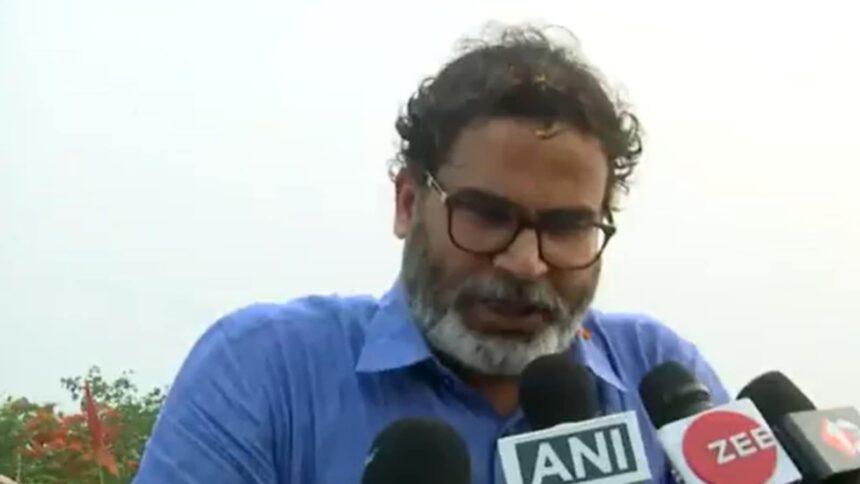With the government greenlighting caste enumeration as part of the upcoming population census, Jan Suraaj founder and political strategist-turned-activist Prashant Kishor Wednesday cautioned that data collection without acting on its findings is meaningless.
“We have no issue with any such census or survey that gives a better understanding of society,” Kishor told reporters. “But, as we have seen in Bihar, merely conducting caste surveys will not improve the situation in the country. Improvement will happen only when the government acts on the results.”
Driving the point home with a metaphor, he said: “You will not become a scholar just by buying a book, you will have to read and understand the book.”
Using Bihar — the first Indian state to conduct a comprehensive caste survey — as a cautionary example, Kishor criticised the state government for its alleged inaction following the 2023 survey. “In Bihar, the caste census report said that poor families would be given Rs 2 lakh for employment, but they have not received it till date,” Kishor said.
The announcement of a caste census sparked immediate political reactions in poll-bound Bihar. Allies of the -led NDA praised the move as a historic step toward a more inclusive society. However, JD(U), which is now part of the NDA, claimed credit for setting the stage by conducting its own caste survey in the state.
| On the to be included in the national census, Jan Suraaj founder Prashant Kishor says, “We have no issue with any such census or survey that gives a better understanding of society, but we have seen it in Bihar that merely caste surveys will not improve the…
— ANI (@ANI)
In February 2020, the Bihar Assembly had passed a unanimous resolution seeking a across the country, with Chief Minister , then heading a Mahagathbandhan government, putting his weight behind it.
Later, the Mahagathbandhan government went ahead and held a statewide caste survey on its own. Its findings, released on October 2, 2023, showed that the Other Backward Classes (OBCs) and the Extremely Backward Classes (EBCs) together constituted more than 63 per cent of the population of Bihar. In absolute numbers, it put Bihar’s population at 13.07 crore, and put the OBCs at 3.54 crore (27 per cent) and the EBCs at 4.7 crore (36 per cent).
The “General” category was found to make up 15.5 per cent of the population, while the number of the SCs was estimated to be 20 per cent and the Scheduled Tribes (STs) 1.6 per cent.
The survey also showed that more than a third of Bihar’s families lived on around Rs 200 a day. Among the SCs, that number stands as high as 43.93 per cent. The state is home to about 2.97 crore families, of which more than 94 lakh (34.13 per cent) live on Rs 6,000 or less a month – the cut-off for below poverty line in Bihar.
The survey also pointed out how only 7 per cent of the state’s population are graduates, again bringing into focus unemployment in the state.








